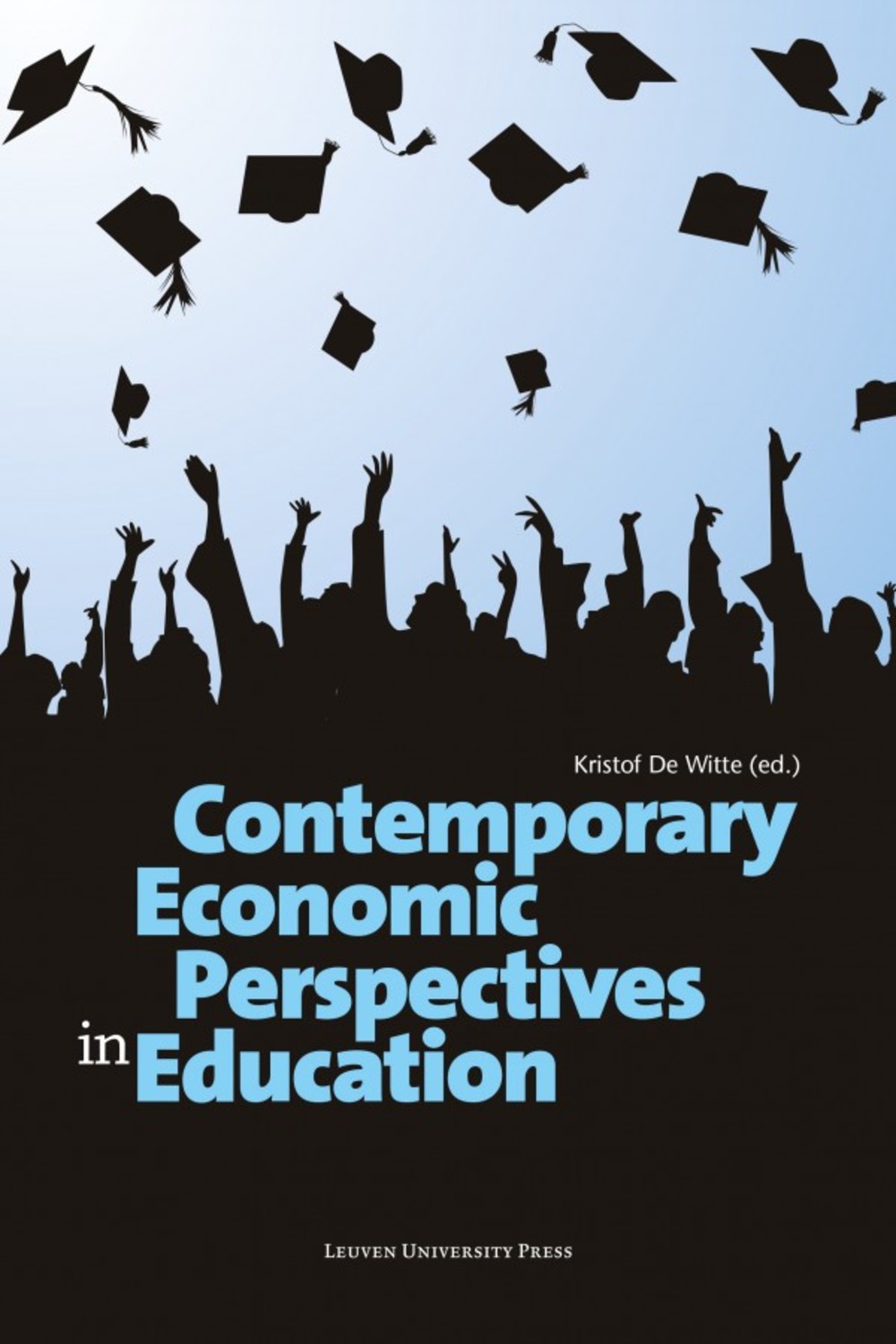
Contemporary Economic Perspectives in Education
Edited by Kristof De Witte
Regular price
€22.00
(including 6% VAT)
Sale
Edited volume - ebook - PDF
VIEW Edited volume - paperback
Efficiency and effectiveness in ‘education economics’
Economists are well placed to study education. They are intrinsically interested in (public) spending. They want to examine whether resources are spent in an effective (i.e., doing the right things) and efficient (i.e., doing things right) way. By focusing on educational efficiency, economists can provide intuitive insights that engender more value for money. Moreover, the effectiveness concerns are related to the ‘evidence-based education’ idea. Contemporary Economic Perspectives in Education contributes to this growing field of ‘education economics’. This book provides a detailed approach to how economists treat earlier evidence, how they avoid measurement problems, and how they measure efficiency. Applications covered include the underperformance of boys, efficiency and equity in education, and inter-industry wage differentials in the health sector.
This publication is GPRC-labeled (Guaranteed Peer-Reviewed Content).
Contributors: Tommaso Agasisti (Politecnico di Milano), Jos Blank (Delft University, Erasmus University Rotterdam), Sofie Cabus (Maastricht University), Nick Deschacht (KU Leuven), Kristof De Witte (KU Leuven, Maastricht University), Inge De Wolf (Inspectie Onderwijs, Maastricht University), Katie Goeman (KU Leuven), Olivier Holz (KU Leuven), Chris Van Klaveren (Maastricht University, University of Amsterdam).
Economists are well placed to study education. They are intrinsically interested in (public) spending. They want to examine whether resources are spent in an effective (i.e., doing the right things) and efficient (i.e., doing things right) way. By focusing on educational efficiency, economists can provide intuitive insights that engender more value for money. Moreover, the effectiveness concerns are related to the ‘evidence-based education’ idea. Contemporary Economic Perspectives in Education contributes to this growing field of ‘education economics’. This book provides a detailed approach to how economists treat earlier evidence, how they avoid measurement problems, and how they measure efficiency. Applications covered include the underperformance of boys, efficiency and equity in education, and inter-industry wage differentials in the health sector.
This publication is GPRC-labeled (Guaranteed Peer-Reviewed Content).
Contributors: Tommaso Agasisti (Politecnico di Milano), Jos Blank (Delft University, Erasmus University Rotterdam), Sofie Cabus (Maastricht University), Nick Deschacht (KU Leuven), Kristof De Witte (KU Leuven, Maastricht University), Inge De Wolf (Inspectie Onderwijs, Maastricht University), Katie Goeman (KU Leuven), Olivier Holz (KU Leuven), Chris Van Klaveren (Maastricht University, University of Amsterdam).
Introduction
Chapter 1: Systematic Reviews in Education Research: When Do Effect Studies Provide Evidence?
1. Introduction
2. First order conditions
3. Second order conditions
4. Third order conditions
5. Applying the inclusion criteria in practice
6. Concluding remarks
Appendix A. Inclusion criteria used in review articles in the Review of Education, edition 2010
Chapter 2: Selection Bias in Educational Issues and the Use of Heckman's Sample Selection Model
1. Introduction
2. Selection bias and causality
3. Heckman's sample selection model
4. The sample selection model in educational research
5. Conclusion
Chapter 3: The Causal Effect of Single-Sex Education versus Coeducation on Motivation and Educational Attainments. Evidence from a Randomized Experiment in Secondary Education
1. Introduction
2. Literature review
3. Flemish education system
4. Data and experiment
5. Quantitative analysis
6. Qualitative analysis
7. Conclusion and policy recommendations
Chapter 4: Benchmarking and Operational Management: an Application of Frontier Analysis to Dutch Secondary Education
1. Introduction
2. Methodology
3. Data
4. Results
5. Conclusions
Chapter 5: Schools' Efficiency and Equity: Evidence from a Stochastic Frontier Approach with Translog Specification
1. Introduction
2. Methodology and data
3. Results and discussion
Appendix A
Chapter 6: Do Nurses React to Inter-Industry Wage Differentials? -; Evidence of Nursing Graduates in the Netherlands
1. Introduction
2. Wage differentials and job-related skills in the literature
3. The life sciences and health industry in the Netherlands
4. Conceptual framework
5. Empirical strategy
6. Data
7. Descriptive statistics
8. Results
9. Discussion and conclusions
Short Author Bios of the Corresponding Authors
Format: Edited volume - ebook - PDF
ISBN: 9789461661586
Publication: January 30, 2015
Languages: English
Kristof De Witte is professor at the Faculty of Economics and Business at KU Leuven and holds the chair in Effectiveness and Efficiency of Educational Innovations at United Nations University (UNU-MERIT) at Maastricht University.
